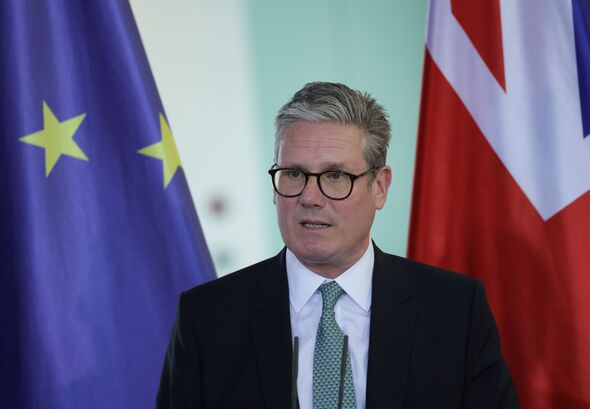
Labour Party leader Sir Keir Starmer has declined to rule out the possibility of the UK rejoining certain European Union migration schemes, sparking speculation about the party’s stance on post-Brexit immigration policies. Speaking in an interview on Wednesday, Starmer emphasized the need for practical solutions to address the UK’s workforce shortages, particularly in critical sectors such as healthcare, agriculture, and hospitality.
When pressed on whether Labour would consider rejoining the EU’s freedom of movement system or similar agreements, Starmer avoided a definitive response, stating, “We need to ensure our immigration policies work for Britain, support economic growth, and protect British jobs.” He added, “Any future arrangements will be guided by what benefits our economy and enhances fairness in the system.”
The remarks come amid growing concerns about the impact of Brexit on the UK’s labor market. Businesses across the country have reported significant challenges in recruiting skilled workers since the end of freedom of movement in 2021. Starmer has previously ruled out reversing Brexit but has left the door open to renegotiating certain agreements with the EU to ease trade and migration barriers.
Conservative Party officials were quick to criticize Starmer’s comments, accusing him of “paving the way for a return to uncontrolled immigration.” Home Secretary Suella Braverman said, “Labour’s lack of clarity is a clear signal they cannot be trusted to uphold the Brexit deal that the British people voted for.”
However, Labour allies argue that the UK must adopt a pragmatic approach to address the labor crisis. Shadow Home Secretary Yvette Cooper defended Starmer’s stance, emphasizing the need to “balance control of borders with ensuring businesses have access to the talent they need.”
As the UK grapples with post-Brexit challenges, Starmer’s ambiguous position on EU migration schemes could become a focal point in the political debate, influencing both party policies and public opinion ahead of the next general election.
Be the first to comment